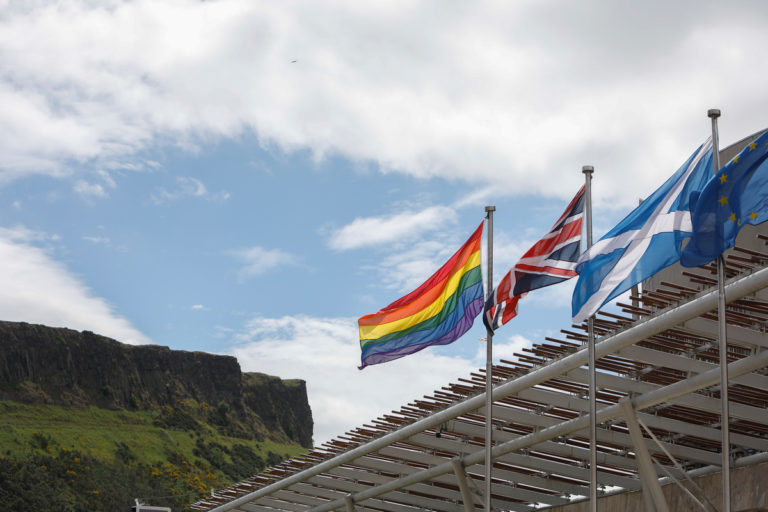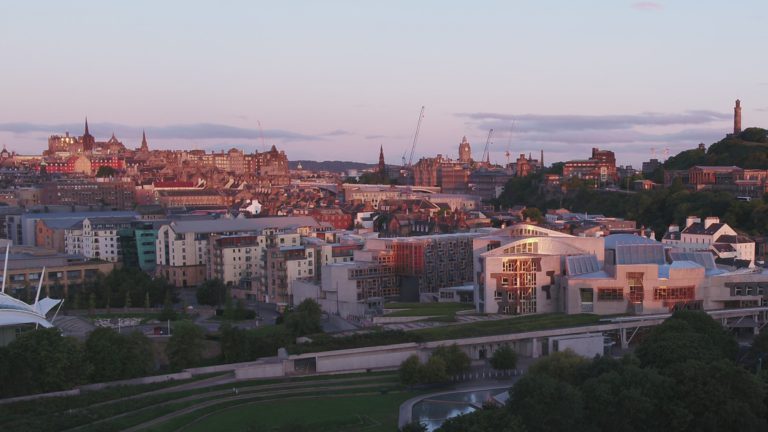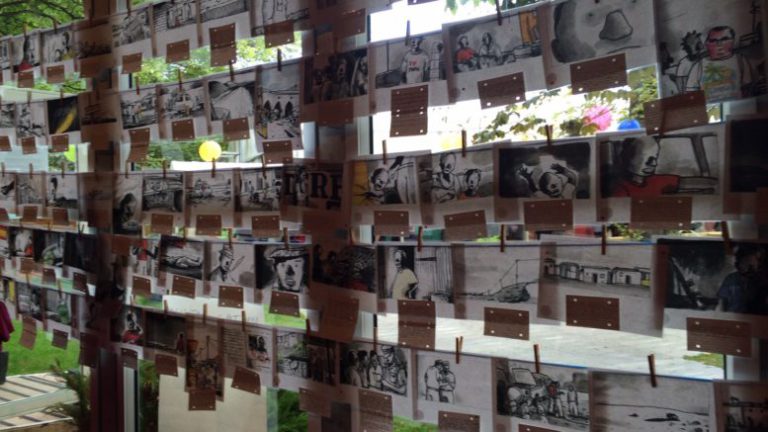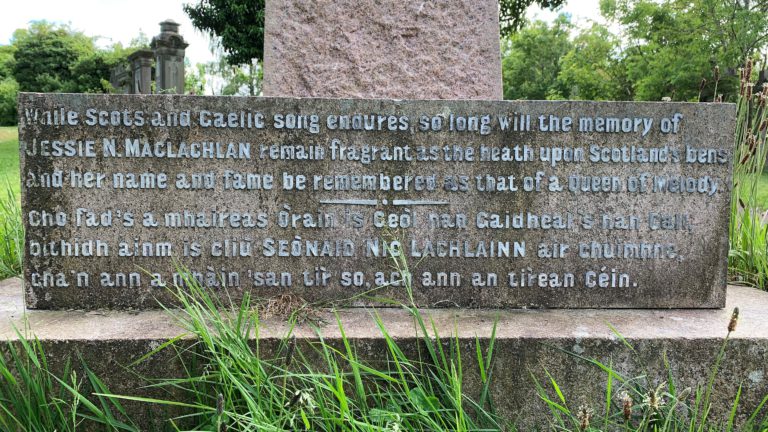Culture, Democracy and the Future
This blog explores the current and future value of arts and culture in Scotland. While the economic, social, health and wellbeing benefits are well established, culture also plays a key role in supporting democratic life. Participation in culture can strengthen critical thinking, openness and civic engagement, helping counter disinformation and exclusionary narratives. Looking at examples such as Art27’s work in Edinburgh, this blog demonstrates how cultural organisations can actively promote democratic values. This blog argues that Scotland’s cultural strategy should maintain its existing aims while actively embedding democratic values for a sustainable and inclusive future.
The Value of Culture in Scotland
Arts and culture have intrinsic value and are a fundamental part of people’s lives.1 In Scotland, the value of culture is clear: from the Edinburgh Fringe, the world’s largest arts festival, to the country’s four UNESCO Creative Cities.2,3 These examples encapsulate the value of arts and culture in Scotland. In the Scottish Government’s current cultural policy, A Culture Strategy for Scotland, culture is framed as “central to the future wellbeing and prosperity of Scotland – cultural, social, economic and environmental”.4
The economic, social, health and wellbeing benefits of culture are well established. However, as Scotland looks to the future the role of culture should be expanded. Culture enriches lives, it can shape societal values and assist in the response to global challenges such as threats to democracy. Looking beyond festivals and galleries, culture influences how we see the world, our values, and behaviours.5,6, Culture reflects who we are, and it can shape who we become, making it a vital part of Scotland’s future.
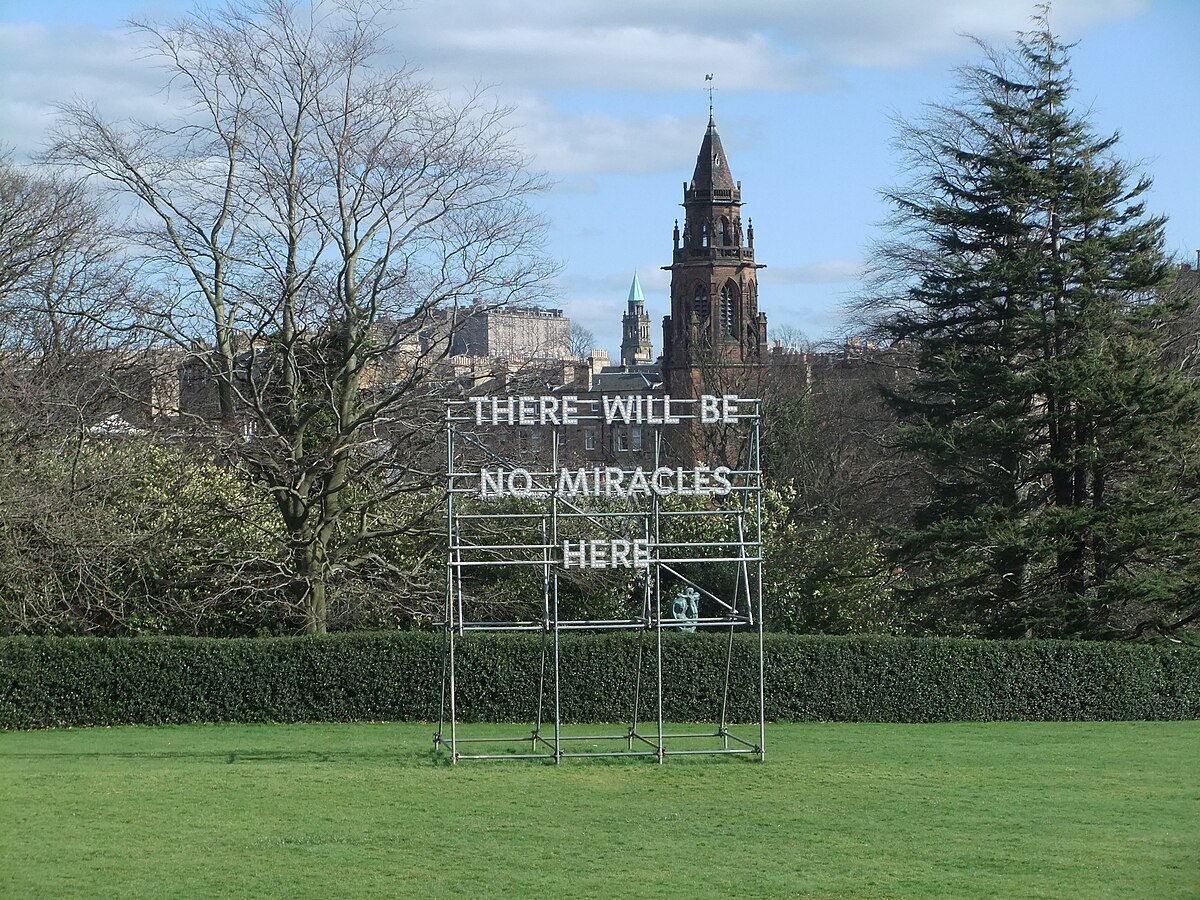
Image source: Alex Liivet, “There will be no miracles here.”, via Wikimedia Commons, CC-BY-2.0.
Culture for Democracy
Engagement in arts and culture has the power to strengthen democratic values. Cultural participation is a strong predictor of a person’s engagement in civic life.7 Research by Martorana and Mazza in 2012 found that those who attend theatre performances are more likely to vote in elections, demonstrating the correlation between cultural participation and civic engagement.8
The relationship between participation in cultural activities and democratic outcomes is not straightforward.9 Participation in culture does not automatically make someone a good citizen, more likely to vote, to volunteer, or even pick up their litter.9 Rather, as stated in the European Union’s report, Culture and Democracy, a person is more likely to do all these things as a “by-product of the experience of participating in collaborative social settings that have creative and expressive activities at their heart”.9 This demonstrates the value of culture as a tool in promoting democratic values. The cultural sector and creative industries can utilise the power of culture to promote democratic values.
In a time of increasing threats to the vitality of democratic institutions throughout Europe and beyond, arts and culture have a crucial role to play in upholding democratic values.9,10 Culture can help tackle disinformation, exclusionary narratives and hate speech.9 Participation in culture can strengthen people’s critical thinking skills, openness to others and awareness of misinformation.9 This supports a more informed and inclusive society for the future. Engagement with arts and culture can assist in developing democratic values in society by reinforcing freedom, tolerance, and civic participation.
For the future, Scotland’s cultural institutions should incorporate the promotion of democratic values within their work. The Edinburgh-based organisation Art27 acts as a strong example.11 Art27’s work is based on Article 27 of the United Nations Declaration of Human Rights which states “Everyone has the right freely to participate in the cultural life of the community, to enjoy the arts”, placing democratic principles at the heart of their mission.11,12 They aim to support “a more just, democratic and peaceful world through cultural expression”.13 Through projects such as Culture = Life, a Palestinian Artist Programme, artists create, perform, and share stories centred around justice and peace.14 This provides a practical and engaging example of cultural democracy facilitation. Projects like this encourage audiences to connect and learn through culture, offering a model that could be adopted across Scotland to safeguard the future of democracy.
Conclusion – The Value of Culture for the Future
Scotland’s cultural strategy should continue to support aims for economic, social, health, wellbeing and environmental benefits while embedding democratic values. Overall, there is a need for continued support and innovation in cultural policy to ensure that Scotland’s future is sustainable, inclusive, and democratic.

Aela Izatt
I work for Scotland’s Futures Forum as Business Coordinator. In summer 2025, I finished my MSc in Creative Industries & Cultural Policy at the University of Glasgow. I am passionate about arts and culture with my research focusing on the value of culture and accessibility, engagement, and participation.
Sources:
- Van Der Ploeg, F. (2006) ‘Chapter 34 The Making of Cultural Policy: A European Perspective’, in Handbook of the Economics of Art and Culture. Elsevier, pp. 1183–1221. Available at: https://doi.org/10.1016/S1574-0676(06)01034-9. ↩︎
- Festivals Forum (2022) Edinburgh: City of Imagination. Corporate Report. Edinburgh, pp. 1–32. Available at: https://www.edinburghfestivalcity.com/assets/000/005/213/2030_Vision_for_Edinburgh_Festival_City_original.pdf?1656601839. ↩︎
- VisitScotland (no date) ‘Scotland’s UNESCO Trail’, VisitScotland. Available at: https://www.visitscotland.com/things-to-do/unesco-trail. ↩︎
- Scottish Government (2020) A Culture Strategy for Scotland. Edinburgh: Scottish Government. ↩︎
- Karaca, B. (2010) ‘The art of integration: probing the role of cultural policy in the making of Europe’, International Journal of Cultural Policy, 16(2), pp. 121–137. Available at: https://doi.org/10.1080/10286630903038899. ↩︎
- Bone, J.K. et al. (2022) ‘Arts and Cultural Engagement, Reportedly Antisocial or Criminalized Behaviors, and Potential Mediators in Two Longitudinal Cohorts of Adolescents’, Journal of Youth and Adolescence, 51(8), pp. 1463–1482. Available at: https://doi.org/10.1007/s10964-022-01591-8. ↩︎
- Campagna, D., Caperna, G. and Montalto, V. (2020) ‘Does Culture Make a Better Citizen? Exploring the Relationship Between Cultural and Civic Participation in Italy’, Social Indicators Research, 149(2), pp. 657–686. Available at: https://doi.org/10.1007/s11205-020-02265-3. ↩︎
- Martorana, M.F. and Mazza, I. (2012) ‘The effect of social interaction and cultural consumption on voting turnout’. Available at: https://mpra.ub.uni-muenchen.de/43963/1/MPRA_paper_43963.pdf. ↩︎
- European Commission. Directorate General for Education, Youth, Sport and Culture. and ECORYS. (2023) Culture and democracy, the evidence: how citizens’ participation in cultural activities enhances civic engagement, democracy and social cohesion: lessons from international research. LU: Publications Office. Available at: https://data.europa.eu/doi/10.2766/39199. ↩︎
- McKay, S. and Tenove, C. (2021) ‘Disinformation as a Threat to Deliberative Democracy’, Political Research Quarterly, 74(3), pp. 703–717. Available at: https://doi.org/10.1177/1065912920938143. ↩︎
- Art27 (no date) Art27 Scotland. Available at: https://art27scotland.org/. ↩︎
- United Nations (1948) Universal Declaration of Human Rights. Paris. Available at: https://www.un.org/en/about-us/universal-declaration-of-human-rights. ↩︎
- Art27 (2025) Art27: Our Plan 2025 – 2028. Available at: https://art27scotland.org/wp-content/uploads/2025/03/Art27_Business_Plan_2025_28_public.pdf. ↩︎
- Art27 (2025) Culture = Life. Available at: https://art27scotland.org/culture-life/. ↩︎

